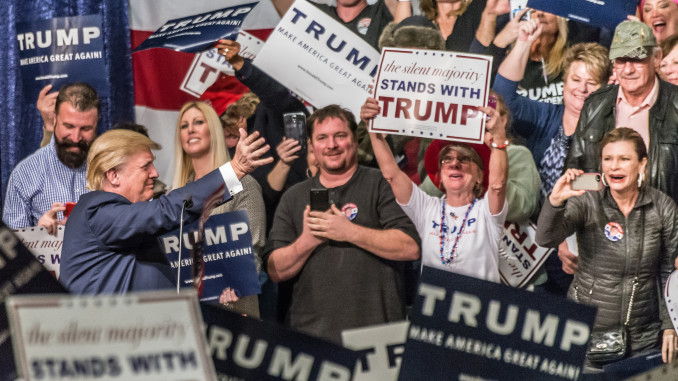
An expanded, revised version of this article is now available in the new book: The Media Versus the Apprentice: The Devil Mr. Trump.
It’s a well-known cliché that the media distorts the news. It’s also very true that politicians lie.
Years ago I wrote a couple books about myths in history. And back then, I suddenly noticed something that was a bit alarming. The same thing was happening on TV: news reporters told stories that mixed facts with guesses and exaggerations. By doing so, their stories became more interesting, newsworthy. But they also became ridiculous, less true.
Every night, while working, I hear the news. So I closely followed the U.S. Presidential elections from 2015 to 2016.
Time and again, I saw that many news reports about the candidates were biased. Reporters constantly undermined Senator Bernie Sanders, to make him look unable to ever become the Democrat presidential nominee. They ignored and dismissed Jill Stein and Gary Johnson. And if you supported Hillary Clinton you’ll remember that political pundits sometimes portrayed her as a flawed, dishonest, and unpopular candidate. (How could she be so unpopular, given that she won almost 66 million votes? That was more than any candidate for President in history except for Barack Obama.)
And they demonized Donald Trump. I had never seen so many news commentators working to dismantle one candidate. (No, I’m not conservative, Republican, Libertarian, etc. I was pro-Bernie. See the bottom of this essay.)
If you too watched the news often, then you may well think that reporters had good reasons to try to demolish Trump. After all, wasn’t he a hate-mongering, sexist, racist, bigoted, homophobic, and utterly dishonest xenophobe?
But time and again I noticed that the media exaggerated some of Trump’s casual careless words and silences to create sensational stories.
There were a series of now infamous news stories that branded Trump as a political anomaly: a real monster. Reporters told us that he called Mexicans rapists, disrespected veterans, said that a woman was too ugly to be President, said that a debate moderator was on her period, ridiculed a disabled reporter, and refused to disavow the Ku Klux Klan. Etc. Did the media report all of these incidents accurately?
We know that sometimes the media distorts the news. But actually, we think that it’s impossible in certain cases. We say: I saw the video. I heard what he said. He did it. It happened. In those cases we think that the media did not invent a story, because we actually saw it.
Can the media affect our perceptions of a video?
Sometimes I felt that I should write articles about the elections and the media. But generally, I didn’t want to get involved in the gross mess of politics.
When the elections finally ended—and incredibly—Trump won, very many people, including many of my friends, where not just disgusted and horrified, but almost physically ill because of Trump’s victory. On television I saw thousands of people protesting in the streets, especially college students, voicing despair that a new Adolf Hitler had become President of the United States.
But personally, I didn’t think Trump was like Hitler. Instead, I thought that the media was a culprit in this mess. Trump certainly said some careless, annoying, mistaken, and objectionable things. But I thought the media blew them out of proportion. Reporters and pundits misrepresented statements and moments almost as if to agitate people into a panic.
Seeing videos of the riots in the streets, I felt that I had had enough. Somebody should expose certain problems in the reporting that had been done by some news outlets.
I decided to write a book about it. It’ll be titled: The Media Versus the Apprentice.
It’s about two characters. The main character is not Donald Trump. At first it might seem that he’s the subject of focus. But by reading several chapters you’ll see that someone else starts to emerge. It’s someone standing next to him, often invisible. For lack of a better word, this person or presence is known as the media.
When I started writing this book, I did not anticipate that soon there’d be a kind of war between the media and the unlikely new President. Mainstream news outlets began to blame purveyors of “fake news” for helping Trump win the White House. Then in turn, Trump and his supporters attacked some media sources by denouncing them too as “fake news.”
But this book is about the past. It’s about the fight between Trump and the media during the elections. Is it true that even the top newspapers and news channels confected some false stories?
Since publishing books takes time, I decided to first post sections of the material on this website, as a sort of news magazine. My goal is to solicit suggestions, corrections, and comments. It’s all very helpful since I’m trying to get things right.
So here’s the New Standard Press, an example of the sort of descriptive work that I wish more reporters would do, instead of the incendiary stories that some of them write.
Nowhere—nowhere at all—will you find a more meticulous account of what actually happened in certain incidents that generated international attention.
Originally he didn’t seem like the Devil
For decades, Donald Trump’s fame grew owing to his involvement in real estate, books, sports promotions, beauty pageants, television shows, etc. But yes, he was mocked by comedians such as Rosie O’Donnell, Bill Maher, and the writers in Spy Magazine. And yes, he became criticized by Democrats for obsessively wanting to see President Obama’s birth certificate.
But even then, Trump was a prominent member of “the establishment,” respected by Republicans and by many Democrats. He donated hundreds of thousands of dollars to Republican candidates and governors. Mitt Romney sought and received Trump’s endorsement for the Presidency in 2012. Trump was well-liked by many TV viewers, Hollywood celebrities, rich people, and famous athletes.
But then something happened. He ran for President.
Suddenly, if you believe the news, Donald Trump unmasked himself as a viciously racist, sexist, anti-Semitic, Islamophobic, xenophobic bigot, a fear-mongering fascist, a sociopath, a dangerously narcissistic pathological liar, a serial rapist, an opportunist who used the most vulgar, crude, derogatory, and offensive expressions to harness and steer the hatred of millions of American citizens who are deaf to reason and kindness.
In rallies across the U.S., tens of thousands of Americans cheered loudly for Donald Trump, applauding with enthusiasm. Chanting: “Trump! Trump! Trump!” Chanting: “U-S-A! U-S-A!” Whistling. Yelling and smiling with glee. Why?
There are many theories about why people liked Trump. A common theory was this: “Because those people are idiotic, hateful, uneducated, racist, sexist, xenophobic bigots.” But I disagree. Let me explain.
Suppose you’re hearing an old man talk, a politician. He’s droning along. It’s all flat. Then he says something that sounds odd. Then the flat talk continues, like this:

The spike can be anything. In the case of Donald Trump, suppose that he said “the blacks,” instead of African Americans. Or maybe he said “Two Corinthians,” instead of “Second Corinthians,” etc.
Some people hear that glitch and think: “That’s evidence of something much bigger.” Something lurks under the surface— so big that it’s creeping out. I call this the iceberg theory of meaning.
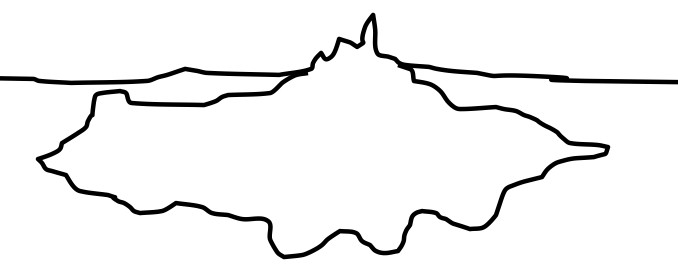
It happens often. But it’s a lousy theory for finding out what people mean. Notice that the diagram allows no possibility that the apparent “tip of the iceberg” is not an iceberg.
Whenever we say anything, there’s usually a difference between what we mean to say and the words we actually use. Suppose you say: “I really like your shoes.” Then suddenly, that person gives you that pair of shoes: “since you liked them so much.” But that’s not what you meant. Maybe you meant: “I really like the way you look with those shoes, even if I myself would not necessarily buy them.”
Or suppose you say: “I think we have a problem communicating.” But the other person angrily replies: “Oh, you think I don’t listen to you? You think I don’t know how to express myself?”
So, you meant to say something, let’s represent that with a dotted shape. It’s like a thought cloud in a cartoon:

But well, the words you actually voiced are in this circle:
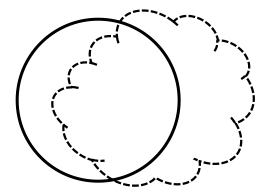
It overlaps what you meant, but not exactly. Then, someone hears you and thinks that you must have meant the big square on the left. And what a terrible thing to say!
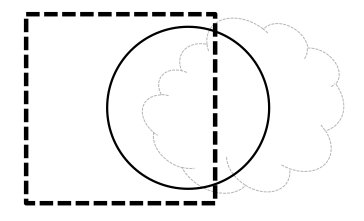
The square area includes some of what you said and what you meant, what’s in the circle and the cloud. But it also excludes some of it. The square also includes things that you did not say or think. The person asks you: Is that what you meant? You reply: “No, not at all! ” Then someone else says: “No, I know that’s what you did mean, you liar.”
I saw this happen to Donald Trump. Only that in his case it was far worse. He said some awkward thing and news commentators rushed to think: What’s the worst possible meaning that it might have? And they decided: That’s what he meant.
Then they denounce him for having said that. But he replied: “I did not say that, and I will not apologize for what I did say.”
Political news pundits took statements out of context, misquoted others, and interpreted phrases in the worst imaginable ways.
See the article about Mexico. Remember when Trump made his campaign announcement? He said: “They’re rapists.” To me, Trump used lousy words, but he was referring to persons who illegally cross the southern border and commit acts of sexual aggression. But many news commentators who heard Trump’s words did not care to ask: “Who do you mean by ‘They’?” Instead, such pundits concluded that he must have meant: “All Mexicans are rapists.” It was the most offensive possible meaning, so they were convinced: that’s what he meant.
They square the circle.
Where they right? When asked, Donald Trump denied such offensive claims multiple times. In dozens of states, countless times he praised Mexico, Mexican people, and the Mexican government. Incredibly, no candidate for the U.S. Presidency had ever praised Mexicans in so many campaign events. But the media didn’t report it.
If Trump did not actually ever say that “All Mexicans are rapists,” then who said it? It was constantly said on television and in news commentaries online. If he did not really say it, then don’t the news pundits deserve some of our disgust for having propagated such an offensive claim?
They frequently said that about Mexicans. And blamed it on Trump. Or did he really say it?
The Media’s favorite stories
I’ve analyzed many of the major Trump controversies during the elections. To what extent were some of them shaped by the media?
If you despise Donald Trump, I hope that you’ll be glad to find that some percentage of the worst things you heard about him was fiction. It was contrived by the media.
Consider the story about the Muslim database. Reportedly, Trump proposed to create a national, mandatory registry that would track all Muslims living in the U.S., and, require them to be identified by special badges or ID cards. Surprisingly, I found that reporters confected this story. Trump himself never proposed a national registry of Muslims.
Consider the stories about Trump and the Ku Klux Klan. The media said that Trump “refused to disavow” David Duke and the KKK. Yet he actually disavowed them dozens of times, even before the media said that he did not. He denounced and disavowed them years before, days before—and even the same day when the media said that he did not—and for weeks thereafter.
Remember also what Trump said about Megyn Kelly: “there was blood coming out of her eyes, uh, blood coming out of her, wherever, but…” News commentators decided that he must have meant that she was on her period. Instead, he explained that by “wherever,” he had meant to say “her nose, her ears,” which is a common phrase. Is it really? It is. But that did not matter, what he explained. Pundits insisted that “wherever” must have meant her uterus.
People who fear and hate Donald Trump don’t hate him for just three or four reasons. They hate him literally for hundreds and hundreds of reasons. Almost every day Trump and the media jointly make a new mess that needs to be cleaned up. So I hope readers can accept that I’m not trying to get you to like Donald Trump. I’m using him to show how the media distorts news stories.
People strongly disagree about Trump. But I hope that the articles here will help undermine some of the ways in which the media encouraged readers to misinterpret his statements in the most horrifying ways.
The media deserved much of the disgust that was showered on Trump.
By focusing on the media’s mistakes I’ll be putting myself in the awful position of devil’s advocate. Some readers might be annoyed that I “defend” Trump, whereas I could instead spend every word defending Hillary Clinton, Bernie Sanders, minorities, or the environment. But bear in mind that there is no shortage of critiques of Donald Trump online and on television, millions of them, every day, right and left, in many languages. So the world hardly needs mine. Actually, I don’t think of this effort as a defense or a justification.
This is not a defense of Trump. This is a critique of the news media. It’s a nagging, frustrating urge that a fair and true account of certain events should be available, somewhere.
Some cynics think that there’s no such thing as the truth. But I disagree. The truth is accessible, interesting, and it will be seen.
An expanded, revised version of this article is now available in the new book: The Media Versus the Apprentice: The Devil Mr. Trump.
Next: How they scared us about Hillary and Donald
I’m a Puerto Rican professor of History at the University of Texas at Austin. I don’t speak for UT Austin, and my views and opinions do not necessarily match those of the university.
During the elections, I entirely wanted Bernie Sanders to be President. I was part of the “Bernie or bust” group. I used to be a Democrat. I voted for Al Gore and Barack Obama. I’ve never been a Republican. I’m apathetic towards political parties. I finally realized that the major political parties are not entirely bad, not very good, but are counterproductive to democracy. So I became an Independent in 2015. I’m part of a disorganized political majority. In 2014, a Gallup poll found that 23% of Americans identified as Republicans, 30% as Democrats, and 45% as Independents.
I despise sexism, racism, anti-Semitism and xenophobia. I know that Black lives matter. I believe that gender and racial inequities should be dismantled. I am anti-patriarchy. I’m in favor of women’s rights and human rights. I believe in reproductive freedom. I’m pro-immigration, pro-choice, and in favor of affirmative action. I affirm the rights of lesbian, gay, queer, bisexual and transsexual persons. I believe in Marriage Equality. I hate discrimination and I know that the principle of equal pay for equal work is frequently and unfairly violated.
I believe in science and environmentalism. I believe in public education and religious freedom. I despise social injustice and gross inequities. I’m in favor of workers’ rights. I believe in raising wages for the lowest earners, especially in corporations where CEOs take millions of dollars. I believe in granting amnesty to undocumented immigrants working in the U.S. I believe in universal health care. I want a balanced budget. I despise imperialism and colonialism. I favor regulating the big banks. I hate the fact that certain multinational banks pillage and control local and foreign governments with excessive loans.
You can disagree with me about all of this. But let me expose the media’s tangle of thorns about the devil Mr. Trump.


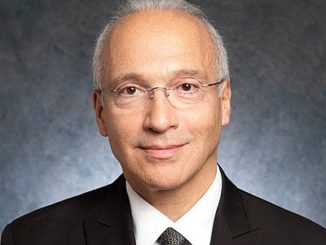
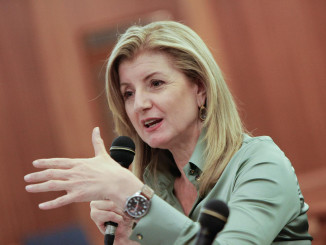
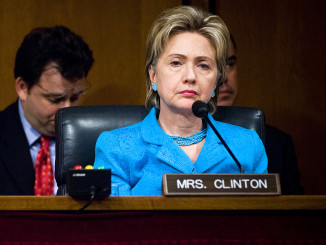
wait, so we’re not supposed to take Trump’s words literally? should we always assume he means something better than he says?
Pretty nice post. I just stumbled upon your site and wanted to say that I’ve really enjoyed browsing it. After all I will be subscribing to your rss feed and I hope you write again soon!
the msm media is the Titanic hitting the iceberg in your diagram
I liked the diagram with the balloons, it explains why my husband always takes my words the wrong way!
thank you for this article, I love media studies and someday they’ll all be studying this trump hoopla
If your supporters are constantly having to defend, “what you really meant” when you said something outlandish, perhaps you’re not that good with words. And, just maybe, someone who constantly has “glitches” when speaking might not be a good advocate or negotiator for policies on either the national or world stage.
I get the point about the bubbles. But the interesting thing is that it no longer matters. Now that Rubio surrendered all self-restraint (well, now that he has new computer programming) by saying that Trump wet his pants, that his hands are small because, you know, etc., and now that the ex-President of Mexico drops the F-bomb twice, etc., the mystery is why nobody freaks out when they do things worse than Trump and yet nobody freaks. Not one media outlet has complained about Rubio’s remarks, instead they praise him for it, wish he had done it earlier. They moronically think people like Trump because of insults and smut words.
Your “fairness doctrine” are good intentions paving the road to hell. You have good intentions, but they are inline with “states rights” that girded our worst war. The media
should be bold and free, especially if you cry foul, especially if you cry foul. That IS freedom.
The media should be bold and free to report the truth, not free to lie, speculate and twist someone’s words.
Intelligent, well throughout chapter. This book will become a best seller. The media likes sensational and provocative reports to support their political view, generating followers. The result is an ill informed public. The political system contionously feeds the hungry media and as you note, shout a twisted truth of most every story. If this continues, it cannot end well. Thank you for your needed reporting.
The media implied he meant that the blood was coming from her uterus. You say he must have meant it was coming from her nose or ears. What he said is what he said! Not what you or the media implied. He doesn’t belong in the public eye if he can’t say what he means!!!
I think the media declared war on Trump when he received the republican nomination. Prior to that, the seemed mostly fair and tried to profit off him.
It is refreshing to encounter a thoughtful, sane liberal. Most Democrats are now unhinged. Trump was not my first (or second or third, etc.) choice, but I had no choice to vote for him. What sane person could vote for Hillary? Trump has been a pleasant surprise. But the media has become outrageously biased. It’s nice that someone is calling them out.
“Trump certainly said some careless, annoying, mistaken, and objectionable things…”
Saying he can grab ” women by the pussy” is much more than objectionable. It is outright outrageus, and it is a glimp into his disrespectfull treatment of women.
“Mainstream news outlets began to blame purveyors of “fake news” for helping Trump win the White House”
Time has confirmed this statement. Facebook fake news paid by Russia was only a fraction of the story.
“..If Trump did not actually ever say that “All Mexicans are rapists,” then who said it? It was constantly said on television and in news commentaries online…”
Commentators are NOT news. There is a big difference. They are not bound to any code of thruthfulness.
Good article. I’m suffering many of these issues in the media too…